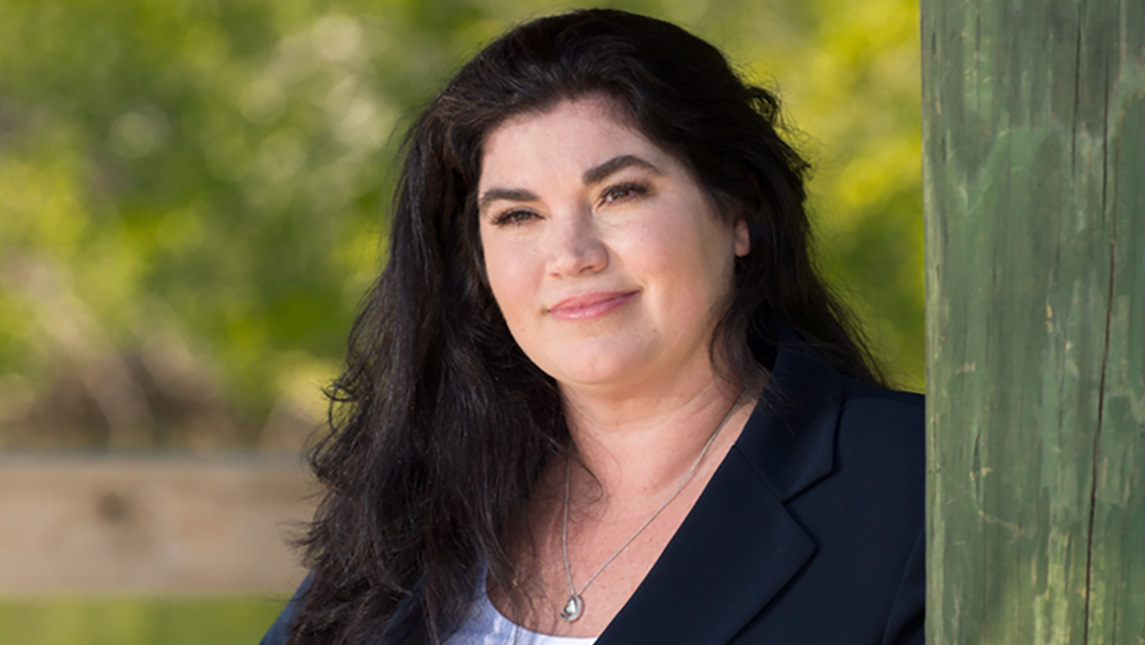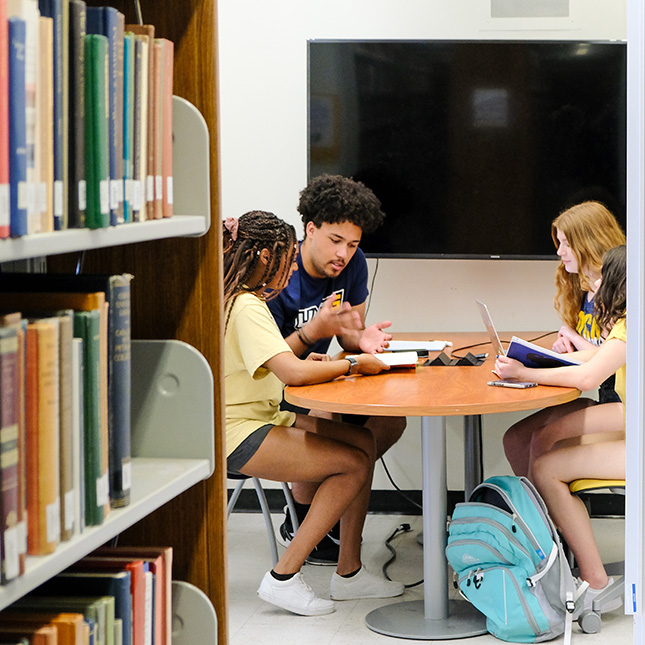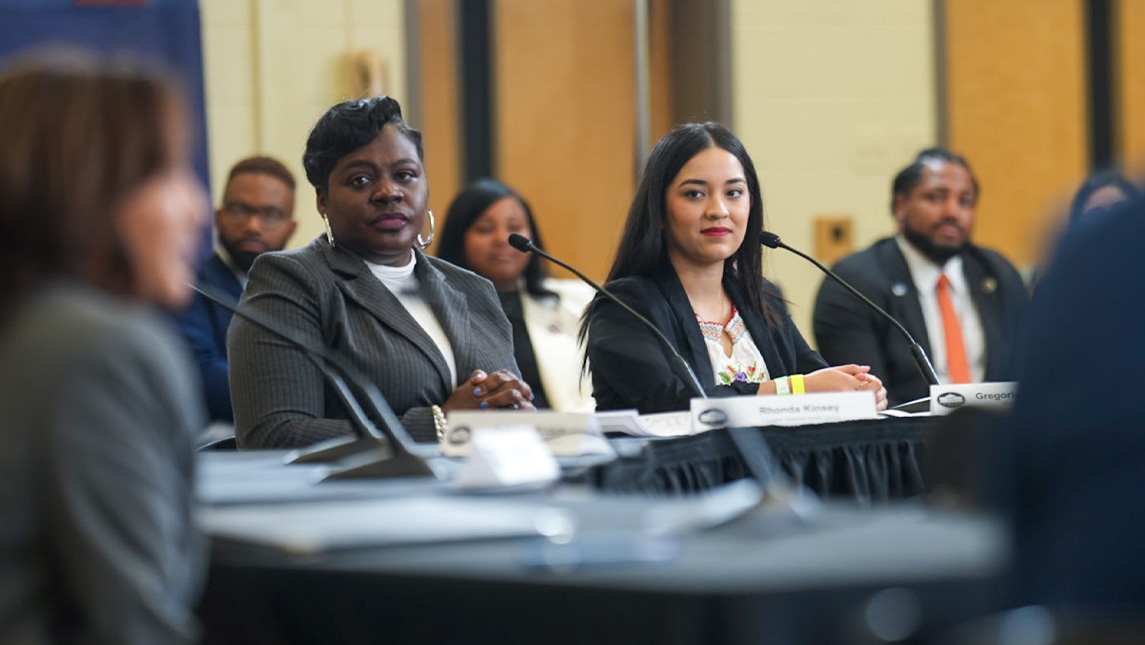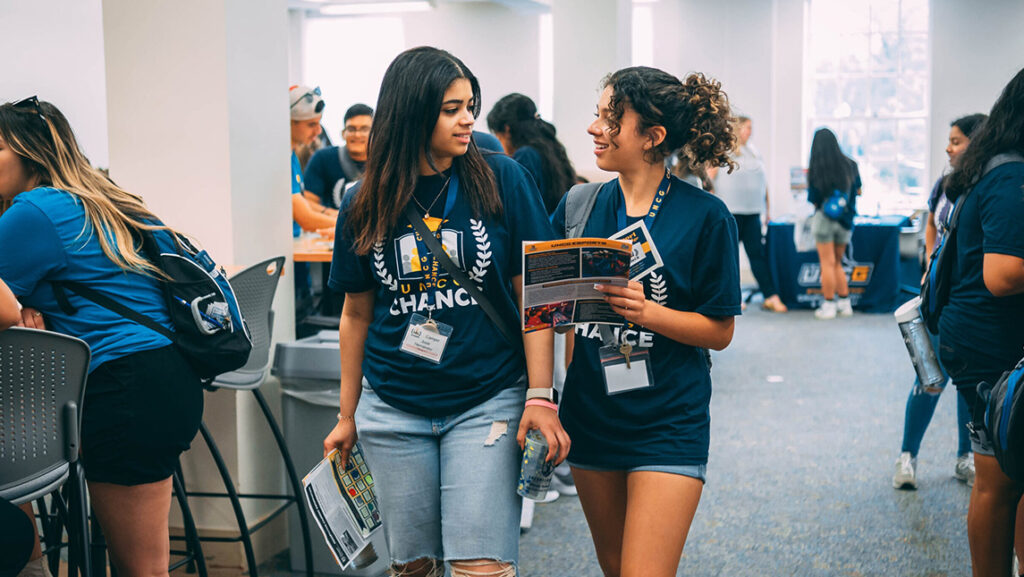As a child of Mexican immigrants, Gregoria Arreola-Meza wasn’t sure how to achieve her goal of earning a college degree.
“I wanted to go to college, but no one in my family knew how to help me,” she says.
It was her high school guidance counselor and UNC Greensboro Admission’s Margarita Kerkado who helped her navigate the college system. Kerkado is the assistant director for Latinx Educational Affairs at UNCG Admissions. She partners with UNCG departments and community organizations to create connections for prospective students so they can find their way. UNCG is an emerging Hispanic-serving institution with 14% of students identifying as Hispanic or Latino in Fall 2023 (a 4% increase from Fall 2022).
Arreola-Meza took her new information back to her high school classmates, but she noticed they were struggling with the college process too.
“There was a big gap in accessibility and how easy it is for students like me to do simple things for college,” she says.
PAYING IT FORWARD
Now, Gregoria is making it her mission to help those students and she’s getting some recognition from the Vice President of the United States. Gregoria, a graduate student studying to be a school counselor in the School of Education’s Department of Counseling and Educational Development (CED) was recently asked to join a roundtable with the vice president around mental health in schools.

“Gregoria is determined to use her voice and what she is learning about education and mental health to help show other students how to find their path, access resources, and overcome challenges,” says Dr. Carrie Wachter Morris, a professor in CED, “Representation matters, and Gregoria is already showing people that they can belong in higher education and mental health careers.”’
Arreola-Meza hopes to advocate for mental health and educational needs by working in North Carolina public schools, helping to remove academic barriers and improve access to restricted mental health and educational resources, particularly for students and families who are traditionally underrepresented.
“I could not be prouder of Gregoria,” says Dr. Wachter Morris. “She has been making an impact in our department from the first day that she set foot on campus. She brings a light to the work she does, and she is a passionate advocate for all children. It was amazing – but not surprising – to see the vice president’s team recognize the powerful impact that she can and will have on her community and the communities that she will serve. “
Arreola-Meza first met briefly with the vice president, explaining her passion for advocacy, which is rooted in her own story as a first-generation Mexican American college student. She was then asked to be part of the roundtable discussion with Vice President Harris and the U.S. Secretary of Education.
“I shared with the vice president that I want to pursue a school counseling career because I see an opportunity for advocacy and representation for students,” says Arreola-Meza, who is from Winston-Salem, North Carolina.
SCALE UP
The vice president was in Charlotte on January 11 promoting the Safer Communities Act and $285 million in funding allocated to help hire and train more than 14,000 mental health professionals in school settings.

Dr. Wachter Morris received over $5.6 million in funding from the U.S. Department of Education that was authorized by the Safer Communities Act to increase the pipeline of mental health professionals in schools.
This grant, called SCALE UP, provides two years of tuition, books, and fees, as well as a stipend to support master’s students who are enrolled in the school counseling concentration and who commit to interning at a high-need rural school — specifically in Rockingham and Alamance counties. Arreola-Meza will serve as a school counseling intern in one of these counties as part of her UNCG graduate studies.
“The SCALE UP grant will allow us to provide something relatively rare — a fully funded graduate education for future school counseling professionals,” says Dr. Morris. “The grant is designated to positively impact the education and mental health of K-12 children by increasing the number of school mental health providers and increasing their ability to serve schools that have a high need. Through the SCALE UP grant, we can also help others learn about school based mental health professions as a career opportunity—or as a resource for K-12 students.”
Arreola-Meza wants to pay it forward and is doing what her UNCG education has prepared her for – making a remarkable, real-world impact.
“It’s not every day that the vice president hears your story and wants you to advocate it on all her platforms because how impactful she felt it was,” Arreola-Meza says. “She told me she was proud of me and wanted me to continue to spread awareness for people pursuing careers in mental health.”
Story by Avery Craine Powell, University Communications
Additional photography courtesy of Gregoria Arreola-Meza and Dr. Carrie Wachter Morris




